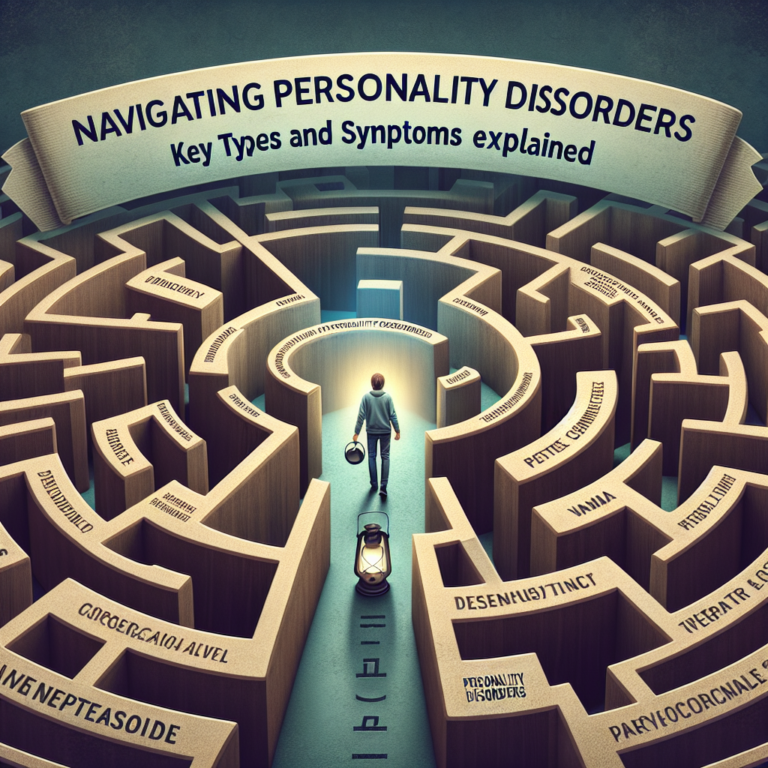
From Awkward to Awesome: Essential Tips for Overcoming Social Anxiety in Daily Life
Introduction
Social anxiety can feel paralyzing. For many, interacting with others or participating in everyday activities results in overwhelming feelings of fear and self-doubt. You might find yourself avoiding social gatherings, struggling to make eye contact, or worrying endlessly about what others think. However, what if you could transform those feelings of awkwardness into confidence? What if you could navigate social situations feeling awesome, rather than anxious? In this article, we will explore actionable tips that illustrate how to transition from an awkward disposition to one of awesomeness in social interactions.
The good news is that overcoming social anxiety is an achievable goal. The journey from awkward to awesome is unique for everyone, but armed with the right strategies and insights, you can cultivate the skills to foster fulfilling social relationships. Join us as we delve into the intricacies of social anxiety, share compelling case studies, analyze data, and empower you with practical techniques designed to transform your social experiences.
Understanding Social Anxiety
What Is Social Anxiety?
Social anxiety disorder (SAD) is characterized by an intense fear of social situations where individuals may feel judged or scrutinized by others. According to the National Institute of Mental Health, about 7% of adults in the United States experience social anxiety. It can manifest in various ways, such as:
- Excessive worry about offending others
- Avoiding parties or group activities
- Physical symptoms, such as sweating or trembling
Understanding these symptoms is the first step in overcoming them. While it’s normal to feel nervous about social interactions, those with social anxiety often face a debilitating fear that can inhibit their daily lives.
Case Study: Sarah’s Journey
Sarah, a 28-year-old marketing professional, had always struggled with social anxiety. She avoided networking events, opting instead for solitary projects. Sarah decided to seek help, beginning therapy and incorporating meditation into her routine. Gradually, she attended small gatherings until she felt ready for larger events. Now, Sarah confidently connects with colleagues and has even started a networking group in her city. Her journey illustrates the potential for transformation when one takes proactive steps to confront anxiety.
Actionable Tips for Overcoming Social Anxiety
Tip 1: Challenge Negative Thoughts
Negative thinking patterns play a significant role in social anxiety. Often, fear is rooted in thoughts like, "What if I embarrass myself?" or "Everyone is judging me." To shift this mindset, consider the following strategies:
- Cognitive Behavioral Therapy (CBT): This therapeutic approach helps challenge and change unhelpful cognitive distortions and behaviors. For example, instead of thinking, "I’m going to make a fool of myself," replace it with, "I might make a mistake, but everyone makes mistakes!"
| Negative Thought | Positive Reframing |
|---|---|
| I will embarrass myself. | Making mistakes is normal. |
| People are judging me. | Most people are focused on themselves. |
Tip 2: Gradually Face Your Fears
The process of gradually exposing yourself to social situations is known as exposure therapy. Start small and celebrate your progress.
- Identify Social Fears: Create a list of social situations you find challenging, from least to most anxiety-provoking.
- Set Realistic Goals: Aim for small goals, such as saying hello to a neighbor or initiating a brief conversation at a coffee shop.
- Track Your Progress: Maintain a journal that details your experiences, noting what went well and what you found difficult.
Data Insight
Research shows that gradual exposure helps reduce anxiety over time. The Journal of Anxiety Disorders reported that those who underwent exposure therapy showed a 70% reduction in anxiety symptoms in social situations after 12 weeks.
Tip 3: Practice Mindfulness and Relaxation Techniques
Mindfulness can help reduce anxiety by grounding you in the present moment. Practices such as deep breathing and meditation can calm the nervous system.
- Deep Breathing: Inhale deeply for four counts, hold for four, and exhale for six. Repeat this until you feel calmer.
- Guided Visualization: Picture a peaceful scenario, allowing your mind to settle before entering a challenging social situation.
Case Study: Mark’s Transformation
Mark, an introverted software developer, faced social anxiety that kept him from attending team lunches. He incorporated mindfulness techniques into his routine, practicing daily meditation and deep breathing. Now, Mark attends team lunches regularly and even leads informal meetings. His story showcases how mindfulness can be a powerful tool in overcoming social anxiety.
Tip 4: Use Positive Affirmations
Self-affirmations can help retrain your brain and boost your confidence over time. Begin with a few simple affirmations that resonate with you, such as:
- "I am capable of engaging with others."
- "I bring valuable contributions to conversations."
Tip 5: Build a Support Network
Having a supportive group of friends or colleagues can make a significant difference in your social journey. Sharing your experiences with trusted individuals can alleviate feelings of isolation.
- Join Support Groups: Many communities offer support groups for social anxiety, which provide a safe space to share experiences and strategies.
- Reach Out to Friends: Sometimes, just having a friend by your side can reduce anxiety in social situations.
Data Insight
According to the Anxiety and Depression Association of America, social support networks can significantly improve mental health outcomes by providing reassurance and decreasing feelings of loneliness.
Tip 6: Avoid Unhealthy Coping Mechanisms
In times of stress, it can be tempting to turn to unhealthy coping mechanisms, such as alcohol or social media avoidance. However, these can exacerbate anxiety in the long term. Instead, consider healthy alternatives:
- Exercise: Physical activity releases endorphins, aiding in mood enhancement.
- Creative Outlets: Writing, painting, or engaging in a hobby can serve as a productive distraction from anxiety.
Active Engagement in Social Situations
Tip 7: Prepare for Social Interactions
Preparation can alleviate anxiety related to unexpected social situations. Here are some techniques to ensure you are well-equipped:
- Script Conversations: Prepare potential conversation starters that you can use in various scenarios.
- Research Topics: Familiarize yourself with current events or shared interests to facilitate discussions.
Tip 8: Immerse Yourself in Social Settings
Incorporating social activities into your daily life is vital for practicing new skills. Attend community events, join clubs, or participate in workshops.
Conclusion
Social anxiety can feel overwhelming, but the journey from awkward to awesome is within your reach. By challenging negative thoughts, practicing mindfulness, and building a support network, you can cultivate confidence in social situations. Remember, transformation does not happen overnight. Celebrate small victories, keep challenging yourself, and never hesitate to seek support when needed.
Embrace the process, because with each step you take, you are moving closer to a life filled with fulfilling social relationships and memorable experiences.
FAQs
1. What is the difference between shyness and social anxiety?
Shyness refers to a feeling of discomfort in social situations, while social anxiety is characterized by intense fear and avoidance of those situations. People with social anxiety often experience physical symptoms such as sweating or trembling.
2. Can social anxiety be treated?
Yes, social anxiety can be treated effectively through various methods, including therapy (such as CBT), medication, and self-help strategies.
3. How long does it take to overcome social anxiety?
The timeframe varies from person to person. Some may see improvement in weeks, while others might take months or longer to feel comfortable in social situations. Consistency and persistence are crucial.
4. What should I do if I experience an anxiety attack in public?
Practice grounding techniques such as deep breathing, focus on your surroundings, and remind yourself that the anxiety will pass. If necessary, remove yourself from the situation to regain composure.
5. Are there online resources for social anxiety support?
Yes, numerous websites and forums provide information and support for individuals dealing with social anxiety. Organizations such as the Anxiety and Depression Association of America offer resources and connections to support groups.
In Closing
Your path from awkward to awesome is just beginning. Use these tips, celebrate your progress, and know that you are not alone in this journey. Each step you take is a stride toward becoming the confident, engaging individual you aspire to be. Get ready to step out, connect, and thrive!











